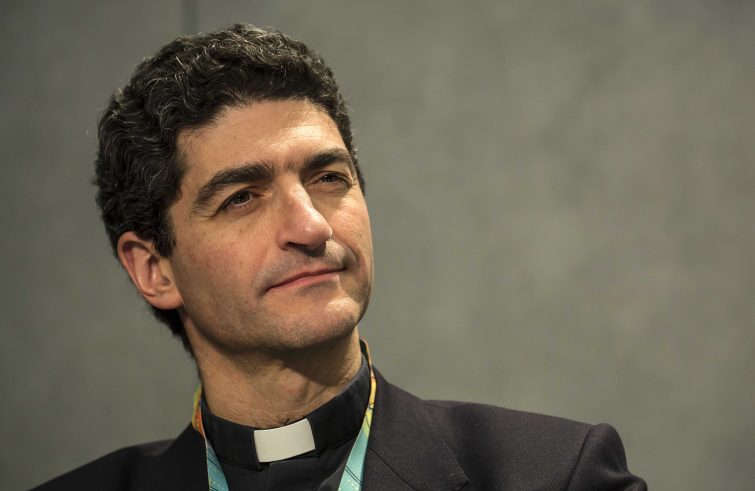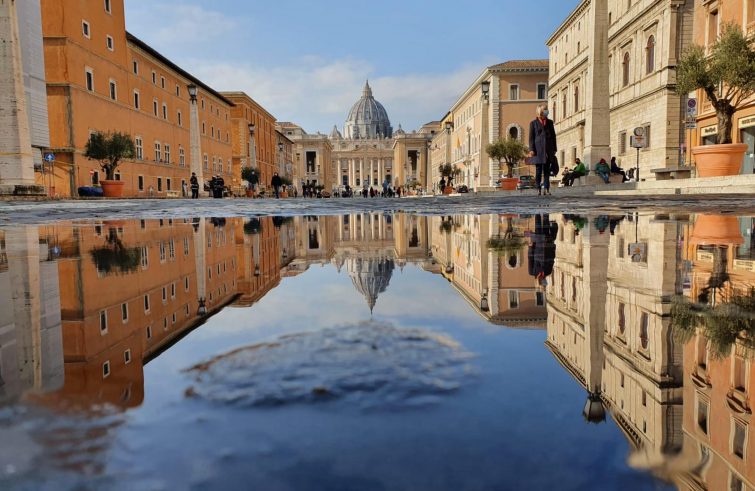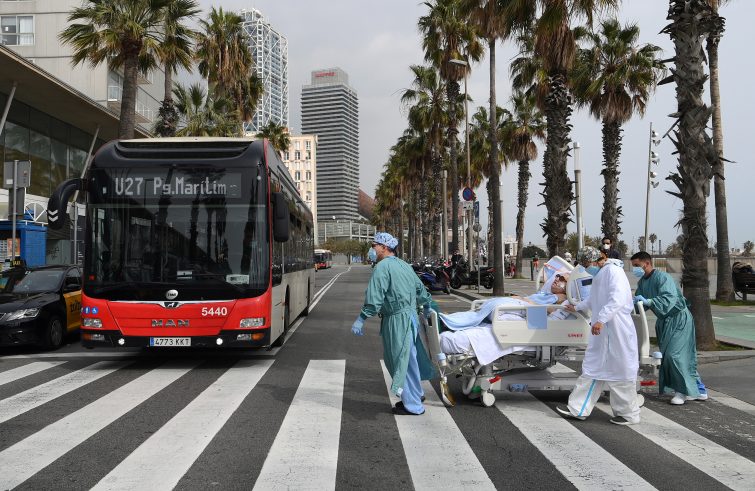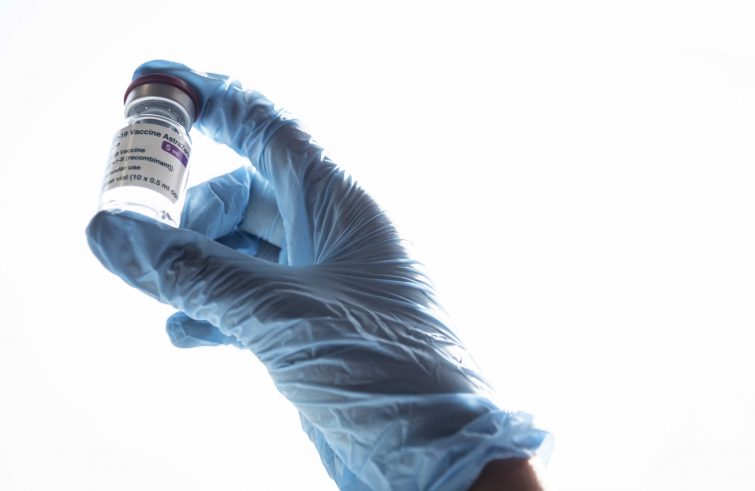
On National Day of Remembrance for Victims of COVID-19, marking one year since the outbreak of the pandemic, Father Augusto Zampini, deputy secretary of the Dicastery for Promoting Integral Human Development, provides an overview of the activity of the Vatican’s Covid-19 Commission which he is a member of, requested by Pope Francis,.
The Pope created a Commission designed to help prepare society to recover from the COVID-19 pandemic on 20 March 2020, only a few weeks after the outbreak of the pandemic. Why?
The Commission was created in response to the Pope’s concern, and to support him in his attempt to “be of inspiration” to the whole world, offering renewed hope to a humanity wounded and ailing in body and soul.
Pope Francis was at the forefront of understanding that the pandemic was dramatically affecting not only people’s health, but also the economy, society, culture, anthropology and politics, the effects of which are hitting the most vulnerable and poorest people the hardest.
Therefore, he strongly called for the creation of the Commission in March 2020: to analyse the current situation – alongside a number of international partners – in order to respond effectively to the problems affecting people’s lives.
How is the Commission structured?
The internal composition comprises five interdepartmental and multidisciplinary working groups, tackling a range of aspects relating to the current emergency in connection with the duties of the Church: support and dialogue with the local Churches. We recently held a meeting with Card. Bassetti and the Italian Bishops’ Conference on this path of dialogue; reflection, analysis and proposals to provide assistance to global leaders in all domains, including the economy, security, healthcare and ecology; disseminating hope amidst so much suffering; relations with the States and international organisations for new governance; and financial support.

How is the Commission’s activity being implemented?
After an initial evaluation and analysis of the various situations and difficulties at global level, the Commission’s activity now focuses on three central reflections stemming from the questions: Why? How? What?
The Commission is there because we are facing an ailing and divided world that needs healing, communion and solidarity.
So how can we create something new? Through new ways of working and by adopting a synodal approach: listening, connecting, inspiring, engaging with all, inside and outside the Church. We try be an integrating part of this transformation. So what should be done? It is necessary to respond to people’s practical needs, especially health care, employment and food. A comprehensive report, 2020 Year in Review, published recently, outlines not only the concrete outcomes of the work carried out by the various groups, but also – and above all – the future steps to be taken, the guidelines we are adopting. Speaking of health today means addressing the issue of vaccines and public health systems; speaking of jobs means viewing the crisis as an opportunity to create dignified and sustainable jobs; and speaking of food also means proposing a new agri-food system. Health, work and food are needed for all, not just for some.
Is the global crisis only health-related, or is it the last mile of a much larger economic, ecological and political crisis?
The whole work of the Commission is based on this assumption.
The crisis we are facing encompasses a set of crises affecting ecology, politics, the economy and society. They are all interconnected.
It epitomises what Pope Francis describes in Laudato Si’: namely that everything is interconnected, the social realm with the environmental one and vice versa; that our health depends on the health of our eco-systems, both natural and political. The Commission is thus actively working in all these areas, with a focus on responding promptly to health emergencies through consultation with the local churches and prompt communication, but also with the implementation of comprehensive projects. As the Pope has asked, the priority now is to prepare for the future, in the light of the pandemic, addressing challenges such as food security, the future of work, biodiversity and disarmament, renewed multilateralism, and new models for the common good. The pandemic, and all related crises, are global, shared crises. Therefore, every response must be a common response. We cannot save ourselves alone.

What kind of world will we see after the pandemic?
It will undoubtedly be a different world. But it will be for us to define what it will be like. In his catechesis on the pandemic “Healing the World”, in August and September last year, Pope Francis reminded us that we will not come out of this crisis the same as before: we either come out better or we come out worse.
However, we must beware of the recurring rhetoric of “recovery”. If we recover what was previously unjust and unsustainable, we will emerge with a world based on pre-existing injustices.
Should that be the case, the poor and the most vulnerable will suffer the worst. We prefer the term “re-generate”: to generate something new, something that brings life and justice for all. This is not a utopian dream, but a feasible one. Our hope is that through our work and a fruitful cooperation with many other agencies and organisations, the cry of the earth and the poor will be acknowledged as the grounds of regeneration.
The pandemic also highlighted the need to harmonise social systems with the ecosystem. Will governments rise to the challenge?
The Commission hopes to help governments develop crisis-exit policies that recognise the harmonious relationship between social systems and ecosystems, whose destabilisation we are responsible for. But this is no easy task, since living in harmony with Creation requires a transformation: an ecological conversion, a deep-rooted conversion, a conversion of the heart. This is where religions, including the Church, can offer guidance for a renewed spirituality open to the care of others and of the natural environment. To this end, the Commission is monitoring the processes leading up to COP26 on ecological issues, as well as the socio-environmental themes of the G20, being held in Italy this year, and the UN Food System Summit, preparations for which will also be in Rome, for the protection of farming and crops.
Disrespect for Creation, biodiversity and the natural environment always results in social problems, especially affecting the poorest. They must not shoulder the new and more sustainable ways the world produces food. Ensuring a fair transition is a key issue for international debate.

What is the position on the COVID vaccine?
The pandemic will never be overcome without a vaccine. Fortunately, today it is possible to develop a new vaccine for a new disease in record time. We should be grateful.
However, if the vaccine is not available to all, it is of no benefit. And if it is available but people don’t want it, it’s useless.
As regards the latter, the Congregation for the Doctrine of the Faith has published a Note addressing concerns over the moral aspects of vaccines, with a special focus on the use of aborted foetuses in research, highlighting the social responsibility of being vaccinated. In addition, the Commission published another Note, in collaboration with the Pontifical Academy for Life: “Vaccines for all – 20 points for a fairer and healthier world.” The document elaborates on the Holy See’s position on the vaccine, reaffirming the importance of ensuring fairness in the entire process of research, production, distribution and administration of the vaccine, along with the need to vaccinate and deliver the vaccine quickly to all. This is where the responsibility of each individual and of the community as a whole comes into play: for us all to be saved, each person must do their part for the common good.
How can access to the vaccine be guaranteed for everyone?
This will not happen through national competition, but only through international collaboration. It is not going to happen if it’s more expensive, but it will if it’s accessible to poor countries that can’t afford to incur additional debt in the midst of this crisis. The price is linked to patents, intellectual property, trade tariffs and so on. And a vaccine for all will not be possible if we lack confidence in this option. The scientific and international bodies such as the WHO can certainly help, but it’s not enough. People are relying on their religion. Therefore,
we are preparing a number of useful resources for local churches worldwide to support communities in the vaccination process, answering people’s questions and doubts.
We don’t engage in any sort of propaganda, but the health of everyone is at stake, especially the most vulnerable. For Christians, health and salvation are always connected. Jesus heals and saves. As disciples of Jesus, we are working towards extending the possibilities of healing and salvation, excluding no one.











